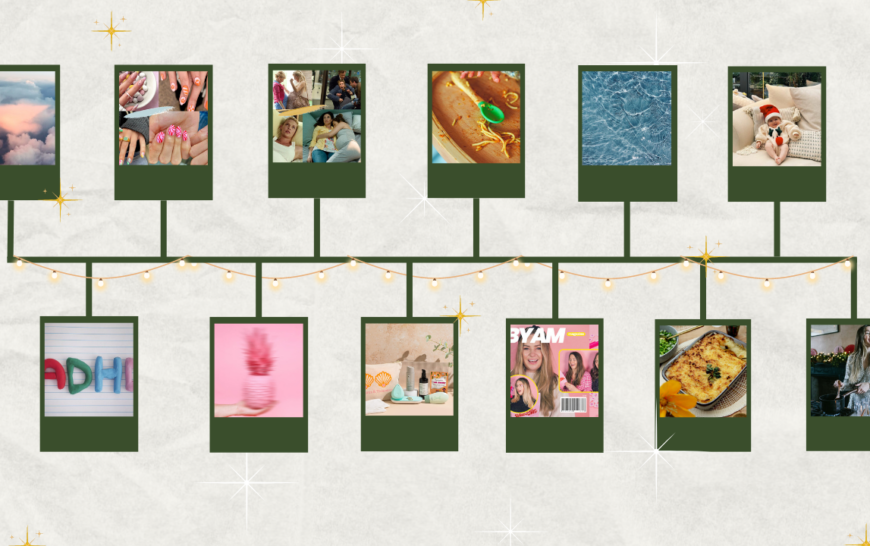
Confusingly, under that high sense of self, was a man who needed constant validation. From myself and others around him, without it he’d get extremely upset
Ally, victim of narcissistic abuse
Narcissism: Selfishness, involving a sense of entitlement, a lack of empathy, and a need for admiration.
Despite the worryingly toxic definition, it’s true that all of us exhibit narcissistic traits to some degree, be it struggling to accept criticism or occasionally prioritising our needs above others for our own gain at times. But in truth the insidious form of emotional and psychological abuse that can come from time spent with someone who fits the full definition, or has been diagnosed with Narcissistic Personality Disorder, is far from the norm.
According to Trauma-Informed Therapist Caroline Strawson who specialises in narcissistic and domestic abuse, narcissism is born out of painful inner child wounds that can cause their internal protector to become extreme, abusive and controlling.
“This goes down to how I define a narcissist using Internal Family Systems- an evidence-based model of psychotherapy. We all have sub-personalities, for example, if you are asked to go to a party and a ‘part’ of you wants to go but another ‘part’ just wants to stay curled up at home and chill. We have them in many formats.
In Internal Family Systems, we work on the premise that we all have a true self which is actually the essence of how we are all born- someone who is compassionate, confident, creative and curious. It is innate within us, but as we go through our childhood, we perceive events in a certain way, and this is when we start to create beliefs about ourselves. For instance, the father who does not praise you can create a negative belief that you are not good enough, and this creates a core inner child wound that is deemed to be so painful that your system will do anything it can to minimise, soothe and distract you away from feeling. You may then have what we call protector parts that show up to take on this role such as people-pleasing, self-harm, addiction, emotional eating etc. In essence, we all have a true self, an inner child wound, or exiled younger part and then these protector parts which serve to move you away from pain, but very often have a destructive impact. Narcissists are exactly the same.
They all have a true self BUT their inner child wound becomes so painful, that their protector parts become very extreme and abusive and become that individual’s false sense of self. The collective name for an individual’s protector parts that are abusive in this way, and are what we call a narcissist.
They all have a true self BUT their inner child wound becomes so painful, that their protector parts become very extreme and abusive and become that individual’s false sense of self. The collective name for an individual’s protector parts that are abusive in this way, and are what we call a narcissist.
Caroline Strawson
There are two types of narcissism: covert and grandiose, both of which are pathological and stem from insecurity, but present in different ways. Grandiose narcissists wish to be seen by others in a very specific way, are driven by status and have an unrealistic sense of superiority, says relationship coach Stefanos Sifandos in a recent podcast episode on the subject with Mark Groves of Create The Love. Grandiose narcissists believe they are too good for the average, ordinary person and continually talk about their achievements and accolades to mask deep-rooted feelings of shame. In comparison, covert narcissists are far more emotionally sensitive and swing back and forth between feeling and presenting as inferior and superior. They can be incredibly possessive, insecure and paranoid in romantic relationships, often stemming from neglect or abuse in childhood.
Knowing why a narcissist may behave in a particular way might help explain their choices, but it certainly doesn’t excuse them. The abuse those close to a narcissist face within every interaction can be so emotionally destructive that life feels unbearable, as Londoner Ally knows all too well…
“I met my ex at the age of 21 back when I was young, naive and had never been in a relationship. The first few months were magical and full of excitement – it felt like I was in a Taylor Swift song. We’d text everyday, spend all of our free time together and we’d quickly fall in love. Within 6 months we’d exchanged ‘I love yous’ and were living under one roof. It was my version of perfect and I was happy.
It started with small digs, usually regarding my appearance and jokes about my race – I brushed them off at first even when it was clear I was uncomfortable with his comments. As this was our first time having any real conflict he was very sweet and understanding of my feelings, but as time went on, my feelings began to go unnoticed, apologies exchanged with anger and being shouted at became part of my everyday routine.
Disagreeing with him or being upset for any valid reason would result in him having tantrums and going as far as punching holes in the wall instead of just communicating with me.
Ally
Whenever I tried to communicate my feelings he would shout in my face while I’d cry and tell me to stop feeling the way I was feeling, it was like he thought I was acting and could simply switch off my emotions. He’d have no empathy and would simply wait until I’d calmed myself down and then tell me how much he loved me and how I was the best person he had ever met.
It felt like he had a personal vendetta against me and would do everything in his power to break me. Ally
I often refer back to being in a relationship with my narcissist ex as being in a relationship with my worst enemy. It felt like he had a personal vendetta against me and would do everything in his power to break me. He had a big sense of entitlement, he felt he could say and do whatever he wanted with no regard to my feelings, everything always seemed to be my fault and getting an apology was impossible. My boundaries were never respected but he’d be upset if I ever tried to disrespect him in the same ways.
As the years went by I got more and more depressed, I’d suddenly found myself isolated from my friends and family, going to work crying every day and being treated like I was his property.
He would tell me what to do, how to live my life and tell me how much of a disappointment I was.. he’d even started telling me I wasn’t allowed to ask him any questions. My life simply revolved around his and he’d tell me I was ruining our relationship if I wanted to do anything different with mine.
I’d go quiet and isolate myself when we were out socialising because I didn’t know how to react to this person pretending to be my boyfriend. Ally
Confusingly, under that high sense of self, was a man who needed constant validation. From myself and others around him, without it he’d get extremely upset. What scared me the most was how nice he was to everyone else, it was like he was a completely different person. He would be so nice to me in front of other people and this confused me and made me feel uncomfortable when we were around others. I’d go quiet and isolate myself when we were out socialising because I didn’t know how to react to this person pretending to be my boyfriend.
Part of the reason I stayed with him is because he was so nice to everyone else that no one believed me when I did speak out about the ways he was treating me. Friends and family thought I could’ve been taking things out of context and perhaps it wasn’t as bad as I thought it was because he was a “nice guy”. I would start to gaslight myself and think maybe I was taking things out of context even after 4 years together.
Unfortunately trying to leave a narcissist is difficult because they will manipulate and gaslight you just as you reach your breaking point. They make you doubt your own reality and tell you that things aren’t as bad as you believe, they’ll start to be nice and tell you about the future plans of getting married and having kids, being the only one they love and guilt-tripping you until you forgive them.
The months leading up to our break-up were extremely difficult, his behaviour had somehow gotten worse and he was putting me through distressing situations almost everyday. I had gotten very depressed by this point and was waking up physically shaking with anxiety on a daily basis.
I was so mentally drained and was finding it impossible to find the motivation to carry on living.
Being with someone who was meant to love me, disregarding every emotion I had, looking me in my face as I cried out all my tears and screaming at me.Ally
I reached my breaking point and broke up with him when he shouted at me for crying after having a stressful day at work, I simply couldn’t live life like that anymore. Being with someone who was meant to love me, disregarding every emotion I had, looking me in my face as I cried out all my tears and screaming at me. The pain after breaking up was something I was not prepared for. It felt like my brain had just made the connection to all the trauma I had faced over the last 4 years. I also didn’t realise how hard it would be to adjust to living life alone. Even the lack of chaos in my life was really hard to adjust to, I was so used to being on an emotional rollercoaster every day that I felt lost without it.
The best thing I did for myself during my breakup was seek therapy, this helped me to gain control of my life again and taught me how to heal from the trauma I had experienced.”
Narcissistic abuse and behaviour is never a reflection of the worth or actions of the individual suffering at the hands of it, but accepting and coming to terms with this fact is far easier said than done. Therapist Caroline Strawson, who was also a victim of narcissistic abuse from her ex-husband, was forced to spend a long time working on dismantling this belief in her own personal life following her divorce.
Narcissistic abuse happened to me, not because of me.Caroline Strawson
“My ex-husband has not changed, but I no longer see his behaviour as a reflection of me- narcissistic abuse happened to me, not because of me, but he certainly highlighted inner wounds that I had the power to heal. I now see him with compassion as I can see why he behaves the way he does, but it in no way excuses his behaviour. It does however explain it and allows me to truly know and feel in my body at a deep nervous system level that it was actually never about me, my protector parts were just a magnet to soothe his lack of worthiness wounds.
Now as an adult, I know I was good enough, but this trauma was literally stuck in the body which is why when I work with my clients we have to do embodied work such as Brainspotting because you can’t think your way out of trauma.”
Currently, there is no known cure for being a narcissist, but psychotherapy is often helpful in building up a narcissist’s poor self-esteem, creating more realistic expectations of others, recognising their own strengths and weaknesses and learning to accept criticism and failure. It is possible for narcissists to relate and engage with others in more positive ways, but reaching a point of willingness for this is often the main barrier therapists face.
If you’re struggling with the impact of living with or knowing a narcissist, the Echo Society, a volunteer-driven not-for-profit organisation providing peer support groups and counselling services, may be able to help. Caroline’s podcast, The Narcissistic Trauma Recovery Podcast is another great resource which she created after leaving her marriage to help others understand more about narcissism, and provide support for those feeling at fault for experiencing this abuse.
“It takes deep body work but this is at the core of my Narcissistic Trauma Recovery Programme. To move from surviving to thriving and what we call in positive psychology, Post Traumatic Growth. Growth and living an even better life because of the narcissist as they were actually the spotlight and catalyst for you to heal your inner child wounds at a deep nervous system level.”






